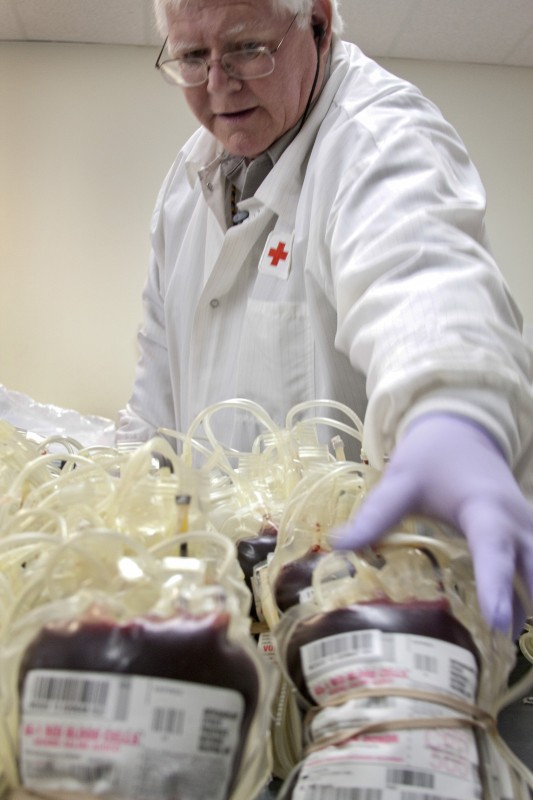Gay men who’ve abstained from sex for one year would be able to donate blood in 2015, ending a lifetime ban for the gay community, under a proposed FDA policy change unveiled Tuesday.
The current lifetime ban by U.S. Food and Drug Administration states dates back to 1983 and forbids men who have had sex with men from becoming blood donors because the group is “at increased risk for HIV, hepatitis B and certain other infections that can be transmitted by transfusion,” the FDA has ruled.
But the FDA is now seeking a change in that policy and would allow such blood donations based on an independent expert advisory panel’s recommendation, the agency said.
The proposed change would align the one-year deferral period “with that of other men and women at increased risk for HIV infection,” the FDA said.
The agency will be gathering public comments on the proposed change.
“We encourage all stakeholders to take this opportunity to provide any information the agency should consider, and look forward to receiving and reviewing these comments,” FDA Commissioner Margaret A. Hamburg said in a statement.
The National Heart Lung and Blood Institute and the FDA would monitor a national blood surveillance system to see any effects of the proposed policy change and to ensure the continued safety of the blood supply, Hamburg said.
“A history of male-to-male sex is associated with an increased risk for exposure to and transmission of certain infectious diseases, including HIV, the virus that causes AIDS,” the FDA said. Men who have had sex with other men represent approximately 2% of the U.S. population, yet are the population most severely affected by HIV, according to the FDA.
In 2010, male-to-male sex accounted for at least 61% of all new HIV infections in the United States, and “an estimated 77% of diagnosed HIV infections among males were attributed to male-to-male sexual contact,” the FDA said.
